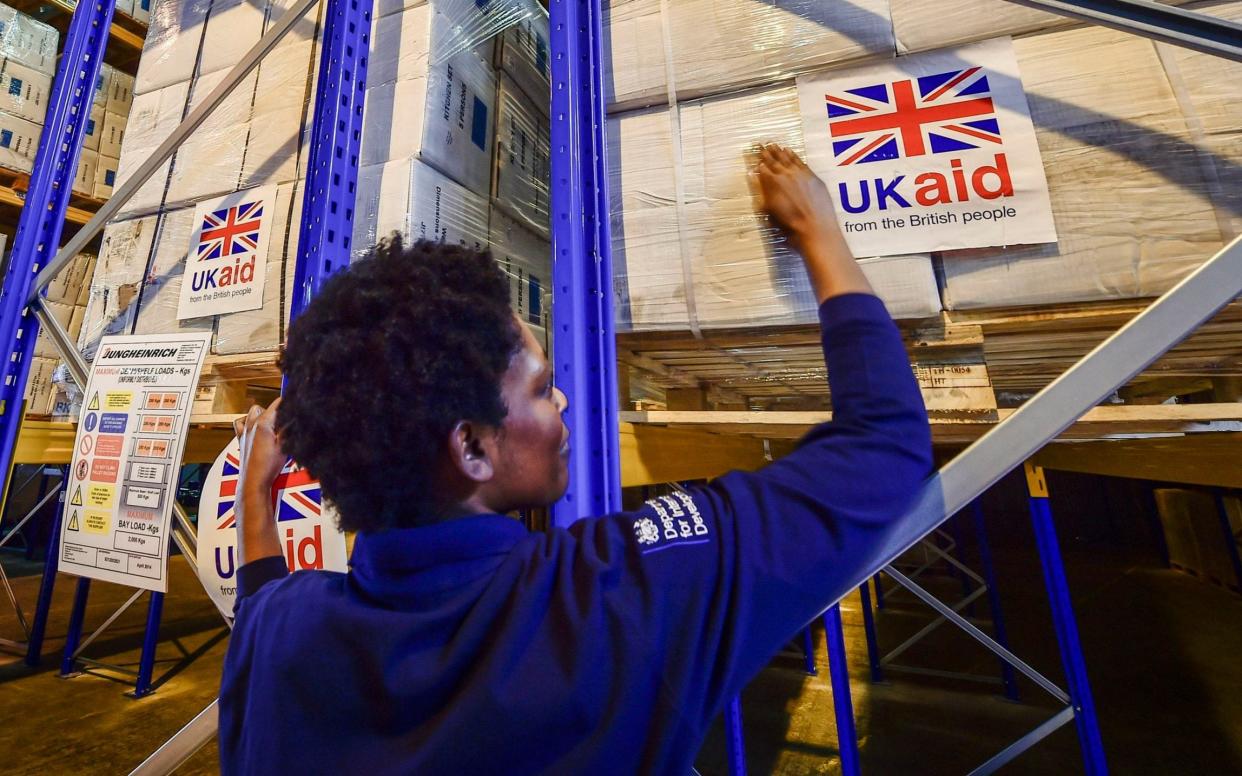UK aid cuts hampered pandemic response in world's poorest countries, report finds

Cuts to the UK’s aid budget have hampered the government’s pandemic-related support to people in the world’s poorest countries, a report by the government’s aid watchdog has found.
A review by the Independent Commission for Aid Impact (ICAI) of how well the government’s aid department responded to Covid has found that an estimated £3.5 billion funding cut has led to programmes that are vital to the long-term response to the pandemic being reduced or shut down.
The report said that while the UK’s early aid response was strong and the country made an important contribution to the development of Covid vaccines, the cut to the aid budget of 0.7 per cent of gross national income down to 0.5 per cent has undermined much of the early work.
Rishi Sunak, the Chancellor, announced the long-expected cut in last year’s spending review, saying the country faced an "economic emergency".
The full scale of the cuts only emerged in April when programmes in areas including family planning, neglected tropical diseases and water and sanitation saw their budgets slashed.
On top of the budget cuts the aid department merged with the Foreign and Commonwealth Office and this also had a negative impact on the pandemic response, the review found. Staff time and focus was taken up with managing the merger and officials reported delays in decision making.
The review commended the “flexibility and adaptability” shown by aid officials when the pandemic first hit. Officials “pivoted” existing aid programmes to respond to both the immediate and long-term impact of the pandemic. By mid April 2020 £733million of aid was reallocated to pandemic programmes - making the UK one of the biggest donors in the early days of the Covid outbreak.
However, the “scale of the budget cuts required to meet the reduction of the aid target… meant many areas of aid spending linked to the pandemic were affected”.
The report said decisions on which areas would be cut did not always reflect the “substantial evidence and analysis on pandemic-related risks and vulnerabilities” that was available.
The report was particularly critical of the government’s decision to cut funding to the UNFPA, which distributes contraceptive supplies to women in low and middle income countries, by 85 per cent. It said the decision came at a time when the pandemic had disrupted women’s access to maternity care and sexual health services, including contraceptives.
Separately, the Guttmacher Institute, a US based think tank, published “troubling” new figures outlining the ramifications of the UK’s aid cuts on family planning worldwide. The institute estimated that, over the 2021-2022 financial year, reductions in funding for reproductive health services will lead to an additional 8,000 maternal deaths, 4.3 million unintended pregnancies and 1.4 million unsafe abortions.
ICAI also highlighted how the UK’s cuts to funding of neglected tropical diseases and women’s sexual health placed extra burdens on already overstretched health systems. Officials in Zambia were particularly concerned about this.
The review was also critical of the government’s decision to recall UK aid staff in March 2020. This "draw down" of staff hampered the aid response and meant that some health advisers were sent home when their knowledge and experience was most needed.
Sarah Champion, Labour MP and chair of the international development committee, said the review “lays bare the devastating impact of the government’s assault on UK aid.
“These cuts are self defeating and threaten future efforts to combat Covid. We won’t be safe from Covid and any new variants in the UK until we have beaten the virus globally. While the UK was a leader in this effort the government’s ideological cuts, found by ICAI to have no evidential base, threaten to undermine our global reputation and recovery, as well as the international effort to halt the pandemic,” she said.
A spokesperson for the Foreign, Commonwealth and Development Office said: “The UK continues to lead the global response to the pandemic. We have contributed £1.7 billion to support the effort to fight coronavirus worldwide.
“Our funding is helping to provide more than a billion vaccines to lower and middle income countries, as well providing coronavirus treatments and tests. No one is safe until we are all safe.”
Protect yourself and your family by learning more about Global Health Security

